"Ever notice that when a house burns down, it's the cockroaches that survive?"
When the movie opened with elephant shit, I knew that this was not going to be my favorite version of Damien Chazelle. To be clear, it’s elephant shit with a thematic purpose. To achieve something in Hollywood, you need to be willing to be degraded. You need to be willing to push harder than anyone around you even as the elephant shits on you, and your reward will be watching rich and famous people attend luxurious parties you’re not invited to. The motif of bodily fluids, if you can even call that a motif, runs throughout the lengths of Babylon. There’s blood and sweat and urine and vomit and hocked loogies and snake venom sucked from a wound: The basic human composition of our bodies poured out and defiled in the name of cinema, which is more business than art. And at the very end of it all, when we have perished and returned to dust, but the glitzy empire stands tall, at last, there is one last fluid to wash them all away: tears.
That’s all well and good, but I still don’t like watching an elephant shit on a man. La La Land, the previous film written and directed by Chazelle, presented a version of Hollywood where the grind of the industry was worthwhile and romantic and full of endings sweet and bitter. It’s almost wholesome. I guess Chazelle spent the past six years reading all the backlash blogs who thought he was nothing but a cheap maudlin-monger. Babylon swings hard, too hard, in the opposite direction. It’s the most cynical movie I’ve seen in some time. Nearly every scene concludes with a cruel punchline.

The subject matter is the transition between silent cinema and sound cinema, and the impact that switch had on people in Hollywood, particularly those who thrived in the silent era. If this sounds like the premise of Singin’ in the Rain, that is not a mistake. Babylon is basically a black-hearted, Caligulan crypto-remake, and that classic musical gets multiple shout-outs. The ending is literally people watching Singin’ in the Rain.
There’s another film that Babylon matches even more closely than Singin’ in the Rain. That would be Paul Thomas Anderson’s Boogie Nights. The films have strikingly similar structures, to the point that you can match up certain scenes and characters one to one. Both show decadence taken to excess, especially as the money dries up and one medium pivots to another. For Boogie Nights, it’s theater porno chic to home video smut; for Babylon, it’s the golden age of silent films to the awkward infancy of talkies. The big difference between the two is that Anderson’s film shows its characters as lovable and irreplaceable while the art they make is disposable junk. Chazelle’s film depicts the exact opposite.
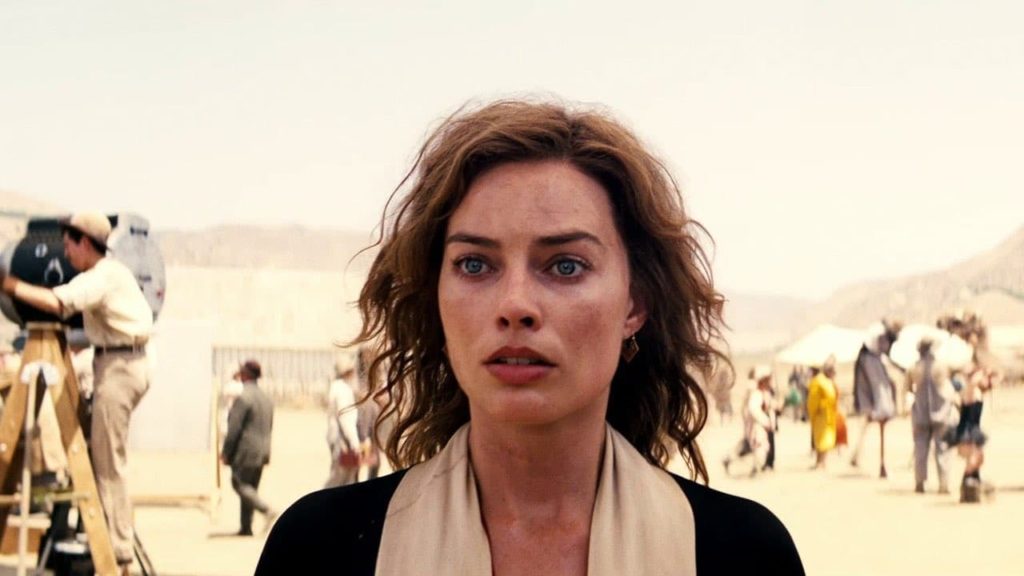
Babylon has a large ensemble, but the three main players are Nellie LeRoy (Margot Robbie), Jack Conrad (Brad Pitt), and Manny Torres (Diego Calva). The trio provides a lens on both the glamour and the nastiness of Hollywood. LeRoy is a hot young upstart, the it-girl, dripping with sex appeal in the pre-Hays Code Hollywood. Conrad is an alcoholic, narcissistic aging heartthrob who has perfected the art of turning “on” when the camera rolls and using his classic good looks to woo young women. Ramirez, a Mexican immigrant, is the relentlessly grinding, dirty-work helping hand who eventually gets involved in production.
All of this plays out in a series of some of the most fantastic scenes of recent years: There are something like six tour de force scenes that have the shape and rhythm of short films. The greatest of these is the montage of silent movies being shot on packed studio lots, the alchemical magic of creation infecting everything around it. The close runner up is the opposite, a scene of a stuffy early talkie where LeRoy has to mutter the words “hello, college!” take after take, ending with a jokey death.
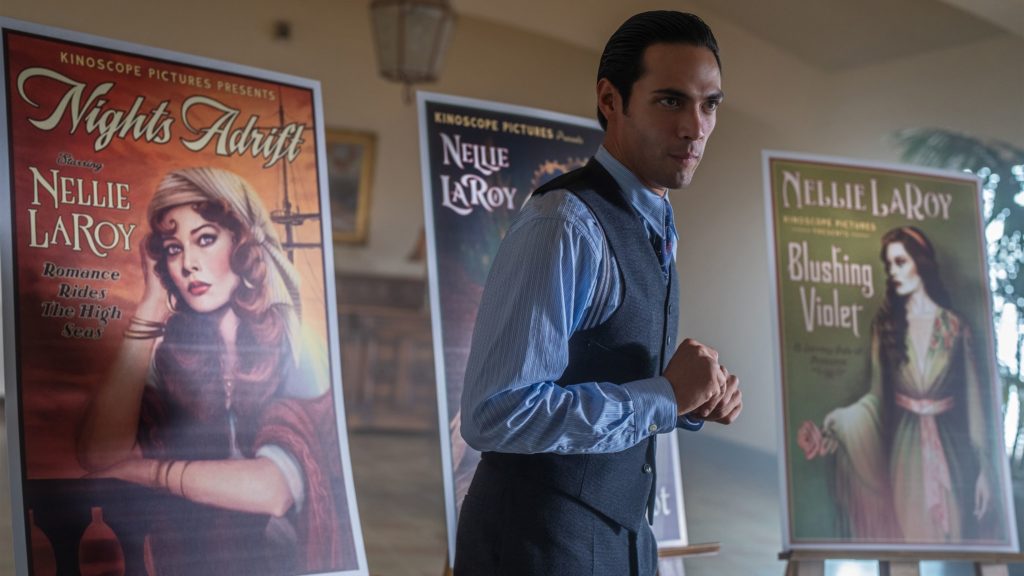
The smaller scenes that hold the movie’s structure are great, too, though Chazelle seems more interested in burning through an endless list of ideas rather than assembling them into a cohesive story. The film pulls in a large stable of secondary characters: There’s a rising jazz star, Sidney Palmer (Jovan Adepo) — I mean, it’s a Chazelle film, so of course there’s a rising jazz star — who is subjected to a cruel racial irony. Lady Fay Zhu (Li Jun Li) is a Chinese actress who plays “exotic” characters and hand-letters intertitle cards. She is a not-even-slightly closeted lesbian. Elinor St. John (Jean Smart) arbitrates the star power hierarchy as a vicious magazine columnist.
Many of the characters in Babylon are based on real-life people who churned through the early studio system. In fact, the film is partially inspired by the book Hollywood Babylon by Kenneth Anger, the underground bible of pre-Code Hollywood gossip. We get a version of the Fatty Arbuckle-Virginia Rappe scandal, a take on the tragic rise-and-fall of Clara Bow with LeRoy, and a bunch of other tabloid legends. (There are some crib sheets floating around online.)
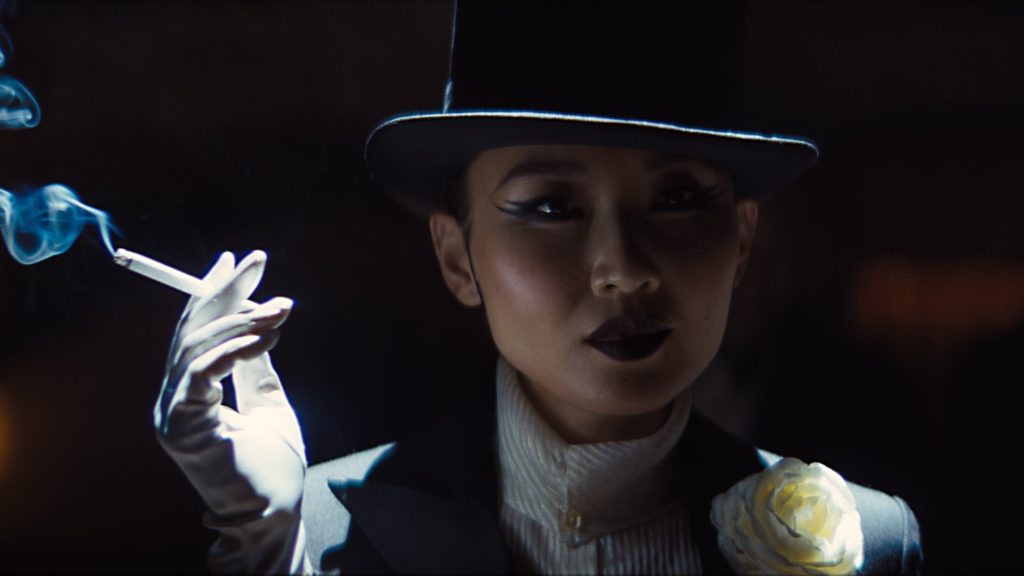
The film is a big mess of characters and plot threads, but Chazelle’s mission statement across them all is that the peak of silent Hollywood was an incendiary time — bright, shining, but inevitably going to burn itself out and turn those in its proximity into ash. The output was magnificent, but the combustion required to get there was brutal.
As with all of Chazelle’s films, Justin Hurwitz returns as a composer, and he delivers another masterpiece. This time, he offers up an early-century smorgasbord: big band swing, cabaret, carnival music, torch songs. It’s all filtered through Hurwitz’s romantic use of character- and theme-based leitmotifs, and polished with a pleasing, modern sheen. The score is rich and interconnected across its various pieces. It’s a truly great soundtrack, one of the best of 2022 and decade so far. Even though Babylon is not really a musical, there are even a few original sung numbers, which are all quite good.

The craft in the film is universally outstanding. I love the editing despite the prodigious length; at least, I like the editing within scenes. It has a terrific, almost musical, cadence cutting between shots. Similarly, the cinematography is gorgeous and rich; soaking in deep, mahogany colors that amplify the decadence; the film’s coloring gradually curdles as its characters’ fortunes sour. It’s the fifth brilliant and unique use of color by Chazelle in as many films.
The acting is great, too, if occasionally just as eccentric and tonally confused as the film itself. Robbie, though not always a favorite of mine, is best in show: She embodies Nellie LeRoy’s combustible personality of spectacle personified. Calva has a quieter role, but has one particular responsibility that he perfects: reaction shots. It never gets old watching him soak in every batshit scene he encounters like he’s watching the smash film of the year with hungry, curious eyes. Meanwhile, Pitt is in his element as a selfish alcoholic riding on his charm, his face still etched with loneliness.
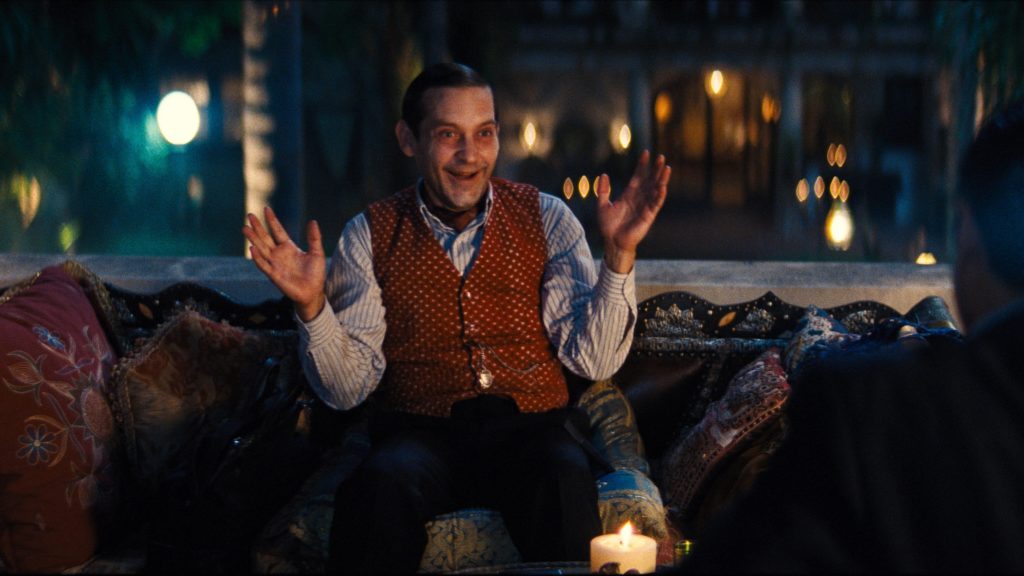
The supporting cast keeps up, too. Tobey Maguire turns into a gremlin in a single, drawn out scene that will give you the willies with equal parts fear and disgust. Smart, Adepo, and Li all leave outsized impressions in small roles, and they accompany an endless retinue of fun cameos and bit parts: Flea, Olivia Wilde, etc.
The film ends with a phantasmagoria of cinema that is one of the more astonishing achievements of montage in recent years. It also reaffirms one of my main hangups with the film: its thematic ambivalence. The conclusion of Babylon can’t decide if its art is sacred or vile, and whenever the film leans too hard towards the latter, it just feels dour.
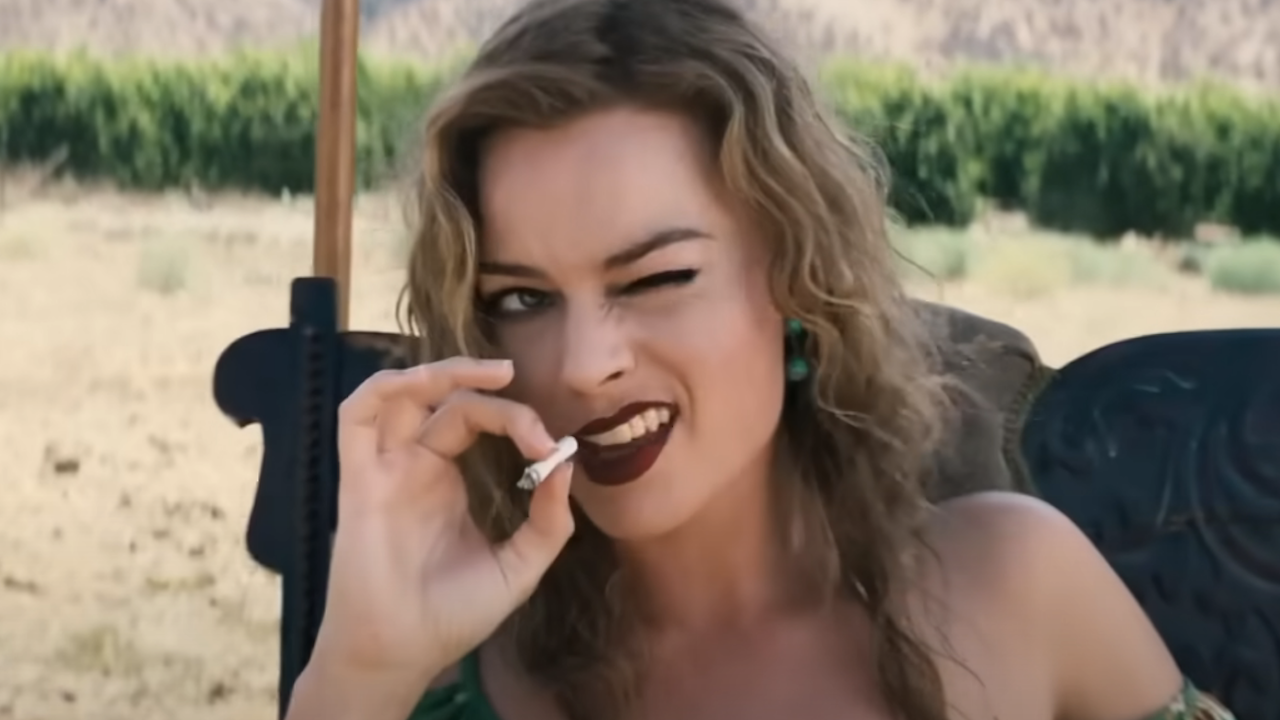
Maybe five or ten years from now, I’ll revisit Babylon and its bleak enigma will seem appealing. Perhaps I’ll shake off all of Chazelle’s impishness and gross-out humor and cynicism and be able to appreciate Babylon for all the incredible things it does with form and beauty and music. Even amidst my state of cognitive dissonance, I still rank it as one of the year’s best films. But considering Chazelle’s last three films were Whiplash, La La Land, and First Man, it’s possible for Babylon to be genuinely great and still be a bit of a letdown.
- Review Series: 2022: Year in Film
- Review Series: Damien Chazelle
Is It Good?
Very Good (6/8)
Awards, Honors, & Rankings
- Favorites of the First Half of the 2020s - Selection
- The B.A.D.S. (2022) - Best Editing (Nominee)
- The B.A.D.S. (2022) - Best Ensemble (Nominee)
- The B.A.D.S. (2022) - Best Score (Nominee)
- The B.A.D.S. (2022) - Best Sound (Nominee)
- The B.A.D.S. (2022) - Best Actor (Diego Calva) (Nominee)
- Top 10 Movies of 2022 - #8
Dan is the founder and head critic of The Goods. Follow Dan on Letterboxd. Join the Discord for updates and discussion.

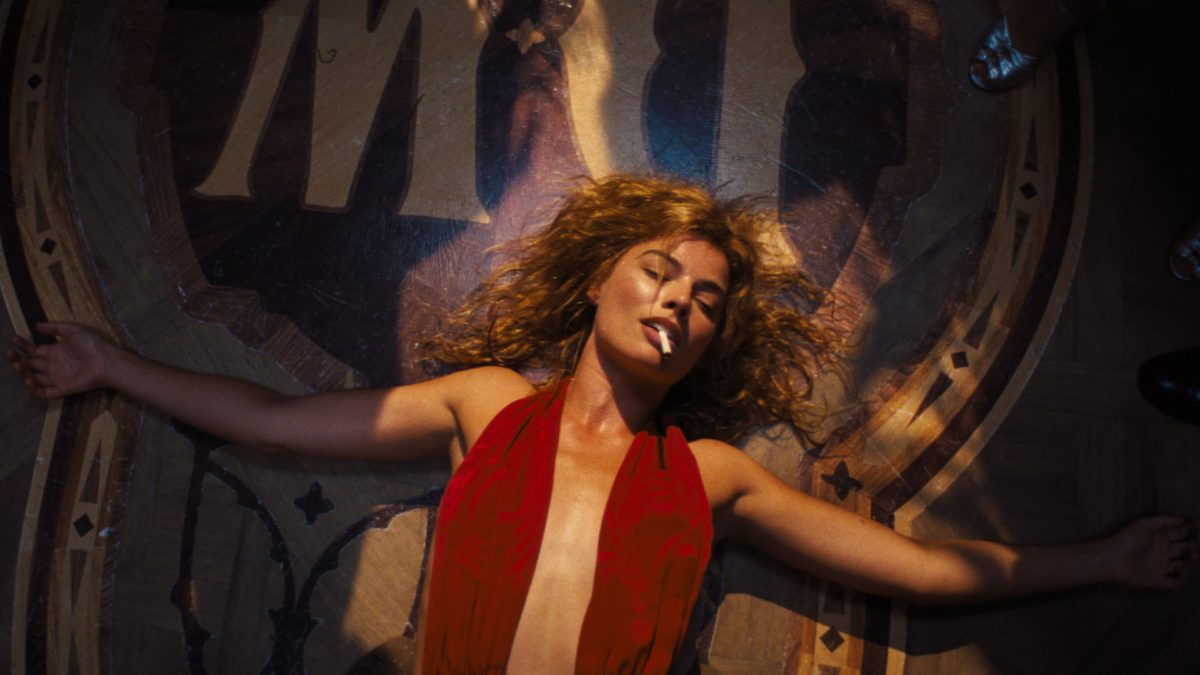
2 replies on “Babylon (2022)”
YEAAAAH.
I’d still happily put this as my second fave Chazelle. I’ve been jonesing to watch it again, it’s just so long (and, sure, it is unnecessarily long, much like its provocations are unnecessarily stiff and awkward, but I still really like the energy and going-beyond-his-comfort-zone it represents, and I really hope Chazelle doesn’t have to, like, do penance with a Marvel movie or something* to keep his career afloat).
*Well, maybe Dazzler. Could he do disco?
TIL about Dazzler. I’d watch the hell out of a Chazelle Dazzler film. What would Hurwitz’s disco score sound like?
I actually liked it slightly more the second time through. Still could use a bit more structure to its story, and its gross-out humor isn’t exactly my thing, but damn what a movie.